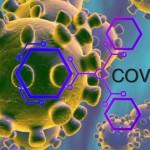 With all the news coverage about COVID-19, it can be difficult to know how to get the most accurate and up-to-date information to protect yourself and your family.
With all the news coverage about COVID-19, it can be difficult to know how to get the most accurate and up-to-date information to protect yourself and your family.
Further, plenty of misinformation is circulating about prevention. Here are the most basic do’s and don’ts as curated from the World Health Organization (WHO) and Johns Hopkins Medicine.
Do: Wash your hands often, for 20 seconds or longer. Also, use hand sanitizer that has at least 60% alcohol.
Don’t: Rely on face masks to protect you. According to Johns Hopkins, “For the general public without respiratory illness, wearing lightweight disposable surgical masks is not recommended. Because they don’t fit tightly, they may allow tiny infected droplets to get into the nose, mouth or eyes.”
Do: Go about your regular activities but try to keep a distance of at least 2-3 feet from those around you. Also, avoid large groups and mass gatherings. In fact, Gov. DeSantis has asked that all mass gatherings in the state be cancelled for the next month.
Don’t: Try to prevent or kill the COVID-19 virus by ingesting, gargling or applying harsh chemicals to your body. It has been rumored that chlorine bleach or alcohol can mitigate the spread. WHO says this is not true and is very dangerous.
Other commonly rumored prevention measures include garlic, vitamin C and saline nose rinses. Again, the WHO says none of these have been shown to be effective against coronavirus.
Do: Cough or sneeze into the crook of your elbow (or into a tissue) instead of into your hands.
Don’t: Touch your eyes, nose or mouth with unwashed hands.
Do: Stay at home if you don’t feel well. Even if your illness is unrelated, you may have a weakened immune system.
Don’t: Assume that you are not at risk for coronavirus if you are young and healthy. Although older people and those with pre-existing medical conditions appear to be more vulnerable, people of all agescan be infected by the new coronavirus, according to the WHO.
Reliable and continuously updated sources to keep up with the current state of COVID-19 include the following:
For Florida information:Visit the Florida Department of Health’s Surveillance Dashboard, which provides continuously updated data by county.
For national information:Visit the Centers for Disease Control & Prevention’s coronavirus page. Find state-by-state data and information on prevention. The site is updated every weekday at 4 p.m.
For international information:Visit the World Health Organization’s Situation Dashboard, which tracks cases by country in near-real-time as well as advice for keeping yourself safe.







